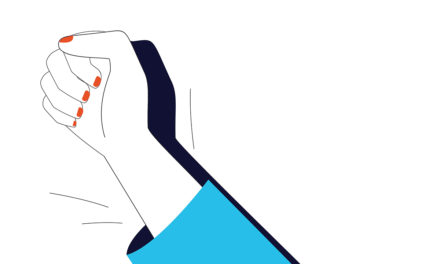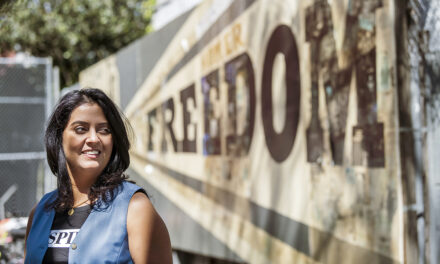Being authentic in the workplace is good for the soul, and it can also accelerate your career. Here’s how it worked for me.
From childhood, whatever I lacked in financial resources and opportunity, I made up for with hard work, drive, and a winning smile. And that worked for much of my life—I excelled at basketball, demonstrated the values of my Indian heritage that my parents had instilled in me, put myself through college, and landed opportunities in financial services—from Amish country to Wall Street—that were worthy of all my ambition. I was succeeding, but I was holding myself back because I was keeping a huge secret from co-workers, friends, and loved ones. I was hiding my sexual orientation, and it was taking up so much mental and emotional energy that I was, at times, perceived as aloof and disconnected by leaders and colleagues, despite my passion and enthusiasm for my career.
At the office, I was all about the work. I wouldn’t get involved in conversations about what I did over the weekend, and I wouldn’t involve myself in the emotional aspects of how other employees were doing. I was afraid to be vulnerable to judgment, stifle my career growth, or even face harassment. In my mind, everything I had worked so hard for, and the friends I had made, could be lost if my secret was discovered. It was exhausting to live a lie. I didn’t feel as productive or creative as I could have been. In fact, hiding who I was from family and colleagues was sabotaging relationships, career growth, and, ultimately, my happiness.
I came out 10 years ago. It was terrifying, but it was also the most empowering thing I’ve ever done, and it had a vast impact on my career. I became more present at work, more confident in my interactions, and more authentic—and it showed.
Of course, living out loud and being true to yourself isn’t the same journey for everyone. In the context of the workplace, being authentic is critical to success across so many dimensions. In more than two decades in the financial services industry, the most successful leaders I’ve worked with haven’t been afraid to be vulnerable. Showing your human side has the power to engage people—it puts them on the same playing field. It gives people the courage to put themselves out there, dig deeper to show creativity, and it creates an environment where employees are more focused on excelling than potentially failing.
Being real is inspiring. That’s because the workplace has evolved from just getting the job done. Now, organizations place a higher premium on leaders who not only deliver bottom-line results but who can also emotionally connect with colleagues and employees and inspire others.
Today, I’m a senior leader at Prudential, and I make a point to let my personal experiences inform my leadership and how I relate to my coworkers. I have found incredible power in claiming my authenticity and transforming from being afraid all the time at work to being fully present and realizing my potential (although I’m still on my way).
By getting to know my clients personally and allowing them to know me, I’m able to break down barriers, build trust, and encourage employees and colleagues to showcase their strengths. When people see you’re willing to be accessible and connect on a human level, they are more open to contributing and less afraid of failure, which yields better outcomes for everyone. This approach has helped me create a climate in which people want to be part of my team, and they seek my council as a friend and advisor. Inspiring others to live more fulfilling professional and personal lives is a big win for any bottom line.
Maya Angelou said it best, “I’ve learned that people will forget what you said, people will forget what you did, but they will never forget how you made them feel.”
Showing your human side gives people the courage to put themselves out there, dig deeper to show creativity, and it creates an environment where employees are more focused on excelling than potentially failing.

For more authentic leadership advice for women at work, go to Amita Mehta Possible.






